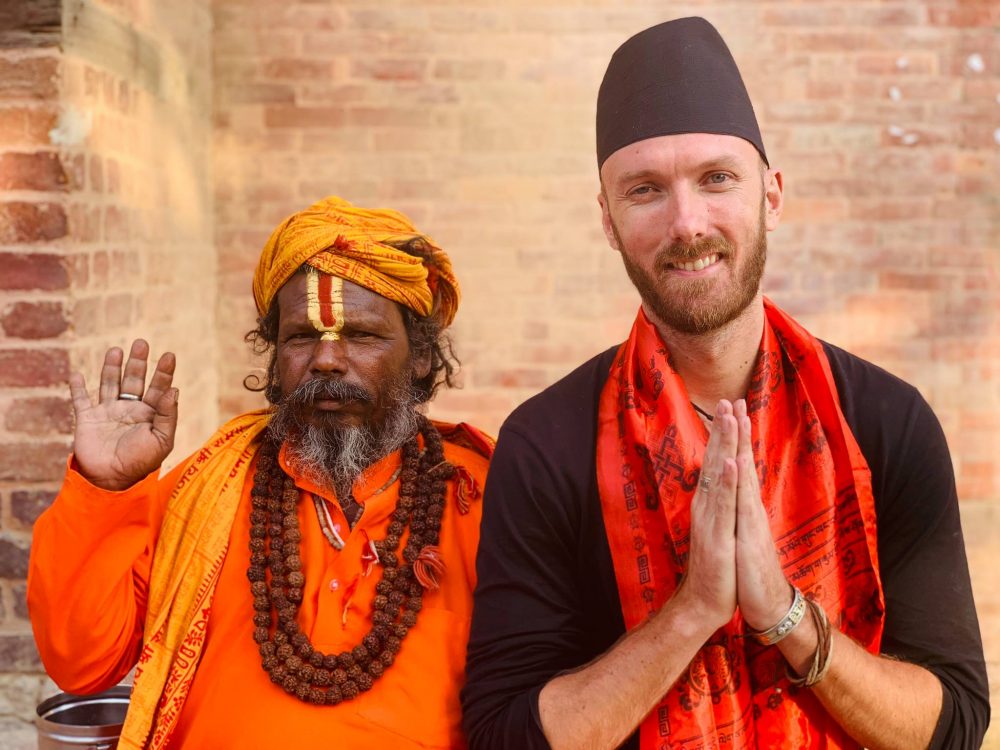Throughout the course of my career there have been days when I’ve found myself sitting at my desk asking the question, “What the hell am I doing here?”
Days when I’ve lost any sense of purpose or meaning in what I’m doing. Have you ever had days like that? Those are tough days. My motivation is at an all-time low on those days.
Coming out of school with a major in Philosophy it’s safe to say that I spent a lot of time looking for meaning and purpose. I read what some of humanity’s great minds and major religions have said about purpose, about why we’re all here. The problem was always that the suggested answers to this age-old question were all over the place and tended to be either dogmatic, or unclear. Neither of which I found very helpful.
It was a long time before I came to an answer on the big question of meaning.
There is no meaning in your career. You bring the meaning.
Purpose wasn’t something to look for out there. It was something to create in here. That was my first mistake. I was looking the wrong way. I was looking for someone to give me purpose. You either bring purpose and meaning to your job, or you don’t. It’s entirely up to you.
One of my many mentors who I’ve never met, Viktor Frankl, helped facilitate this realization by sharing his own experience under one of the most extreme situations any human being could imagine: surviving the Holocaust. Frankl was a psychiatrist by trade, so as he went through life as a prisoner at Auschwitz there was a part of him that was observing his experiences with a keen curiosity. What could this experience teach him about meaning and purpose — an experience that seemed so blatantly void of meaning? His experience led him to discover not only the possibility but the importance of finding meaning in all forms of existence, even the most brutal ones and thus, a reason to continue living.
Frankl concluded from his experience that a person’s psychological reactions are not solely the result of the conditions of their life, but also from how they choose to respond to those conditions. The inner hold that someone has on their spiritual self relies on having a hope in the future, and once a someone loses that hope, he or she is doomed.
Meaning is good for us.
As Nietzsche once wrote, “He who has a why to live for can bear almost any how.” Modern science has further validated this reality. People with a greater sense of purpose live longer, sleep better. Purpose cuts the risk of stroke and depression. It helps people recover from addiction or manage their glucose levels if they’re diabetic. In an analysis of 7000 middle-aged people in the US, even small increases in sense of purpose and meaning were associated with big drops in the chances of dying during a period of 14 years.
If a pharmaceutical company could bottle meaning, it would make billions.
This is good news. This is good news because it means that we own the narrative of meaning and purpose in our personal and professional lives.The only problem is that no one ever taught us how to sit down and create meaning so for most of us we’ve just never tried.
So let’s try.
Victor Stercher, author of the book, Life On Purpose, suggests starting small by setting a different purpose for each four domains in life – family, work, community, and personal. Taking a high level view of your Life Wheel can help you do this for all the different domains in your life. If we start with work, you might ask yourself the following question, “What is the purpose of my current job?” For five minutes, write down whatever comes to mind. Just let the answers come without judging them. Then, ask yourself the question, “What do I want the purpose of my job to be?” and write for five minutes more.
Compare your answers.
What are the similarities? What are the differences?
Asking these questions launches a conscious process of creating meaning in your career and this is a powerful step toward fulfillment.

